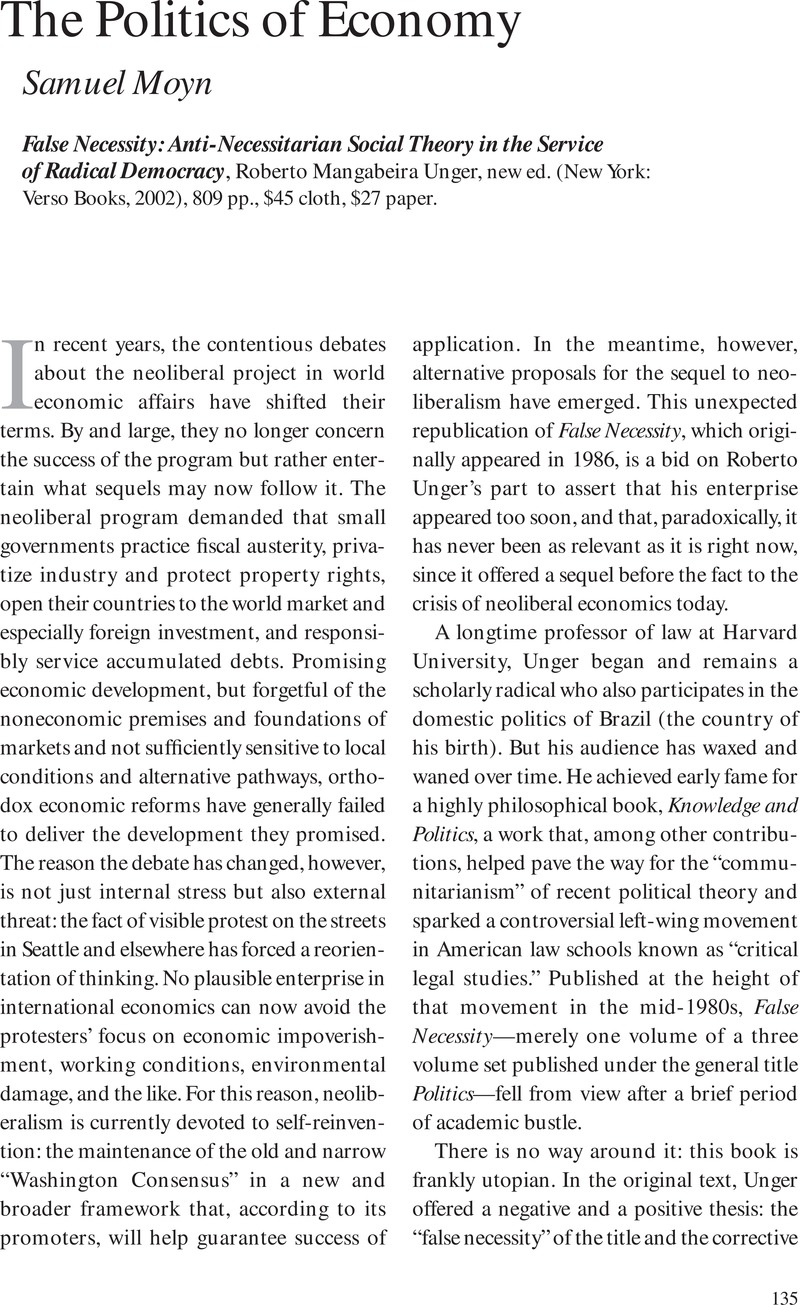No CrossRef data available.
Article contents
The Politics of Economy
Review products
Published online by Cambridge University Press: 28 September 2012
Abstract

- Type
- Review Essays
- Information
- Copyright
- Copyright © Carnegie Council for Ethics in International Affairs 2002
References
1 See, most notably, Lovin, RobinPerry, MichaelCritique and Construction: A Symposium on Roberto Unger's “Politics” 1990 CambridgeCambridge University PressGoogle Scholar), with contributions from such figures as John Dunn, Geoffrey Hawthorn, Tony Judt, Richard Rorty, and Cass Sunstein. The most thorough and insightful assessment of Unger's project remains that of Anderson, Perry Roberto Unger and the Politics of Empowerment in A Zone of Engagement 1992 New YorkVersoGoogle Scholar).
2 Unger, Roberto MangabeiraDemocracy Realized: The Progressive Alternative 1998 New YorkVerso BooksGoogle Scholar).
3 Stiglitz, Joseph EGlobalization and Its Discontents 2002 New YorkW. W. NortonGoogle Scholar).
4 See, for example, Rodrik, DaniThe New Global Economy and Developing Countries: Making Openness Work 1999 Washington, D.C./BaltimoreODC/Johns Hopkins University PressGoogle Scholar).
5 Hardt, MichaelNegri, AntonioEmpire 2000 CambridgeHarvard University PressGoogle Scholar). See also Cohen, Mitchell An Empire of Cant:Hardt, Negri, and Postmodern Political Theory “Dissent” Summer 2002Google Scholar); available at http://www.dissentmagazine.org.
6 Krugman, Paul, “The Confidence Game,” New Republic, October 5, 1998, pp. 23–25.Google Scholar
7 Unger, Uzan, Marc The Really New Bretton Woods in The Financial System under Stress: An Architecture for the New World Economy 1996 New YorkRout-ledgeGoogle Scholar).


